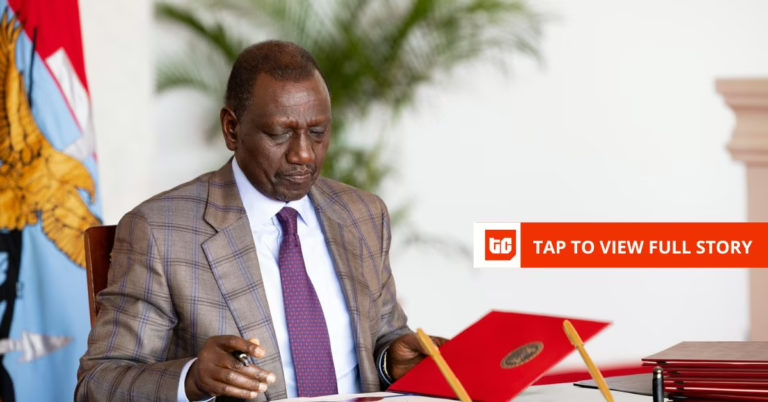Kenya is poised to enact its inaugural cryptocurrency legislation following the recent approval of the Virtual Asset Service Providers (VASP) Bill, 2025, by Parliament during its third reading on Tuesday. Awaiting only President William Ruto’s signature, this law could position Kenya among the pioneering African countries to implement a definitive regulatory framework for digital assets.
Initially presented in 2024, the bill designates the Central Bank of Kenya (CBK) alongside the Capital Markets Authority (CMA) as co-regulators overseeing digital asset activities. The Treasury Cabinet Secretary will be empowered to issue comprehensive regulations covering stablecoins, asset tokenization, trading platforms, capital and solvency requirements, as well as anti-money laundering protocols.
After extensive deliberations in committee stages and public consultations, Attorney General Dorcas Oduor is finalizing the draft for presidential approval. Legislators have indicated that the version passed in the third reading incorporates enhanced compliance and licensing provisions, although the updated document has yet to be made public.
This legislative milestone sets the stage for Kenya to establish one of the continent’s most robust virtual asset regulatory systems, featuring explicit mandates on capital reserves, solvency, and consumer safeguards for service providers. It will also create a formal licensing route for both domestic and international crypto enterprises already operating in Kenya, such as Luno, Busha, KotaniPay, Fonbnk, Swypt, and Binance.
“With the VASP Bill’s passage, Kenya is just one step away from setting a regulatory precedent,” remarked Chebet Kipingor, Business Operations Manager at Busha Kenya, a Nigerian crypto startup’s subsidiary. “This development signals that Africa’s leading innovative economy is prepared to harmonize technological advancement with consumer protection, prioritizing progress over apprehension in shaping our digital future.”
However, the competitiveness of these startups will hinge on the specific regulatory standards and capital requirements established. The timing of this legislation is critical, as Kenya faces mounting pressure to enhance financial oversight to exit the Financial Action Task Force (FATF) greylist and fulfill fiscal and revenue objectives linked to its International Monetary Fund (IMF) extended fund facility (EFF), which was terminated in March, according to an industry source who requested anonymity.
The ultimate challenge lies in the Treasury’s forthcoming subsidiary regulations. How it defines capital adequacy, asset custody, and disclosure obligations for startups will be decisive in determining whether Kenya becomes the preferred hub for digital asset service providers in Africa or inadvertently drives them to relocate abroad. President Ruto is anticipated to receive the finalized bill within the coming weeks, marking a historic moment for Kenya’s crypto regulatory landscape.
Save the date! Moonshot by TechCabal returns to Lagos on October 15-16! Join Africa’s leading founders, creatives, and tech innovators for two days of inspiring keynotes, networking, and visionary ideas. Secure your tickets now at: moonshot.techcabal.com
























0 Comments